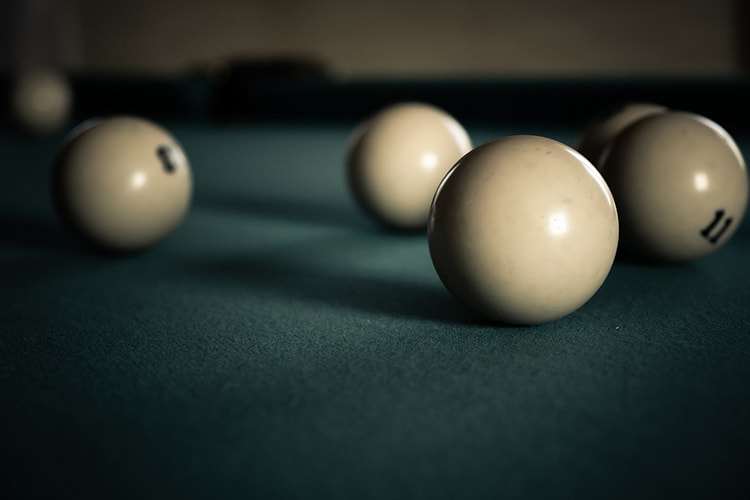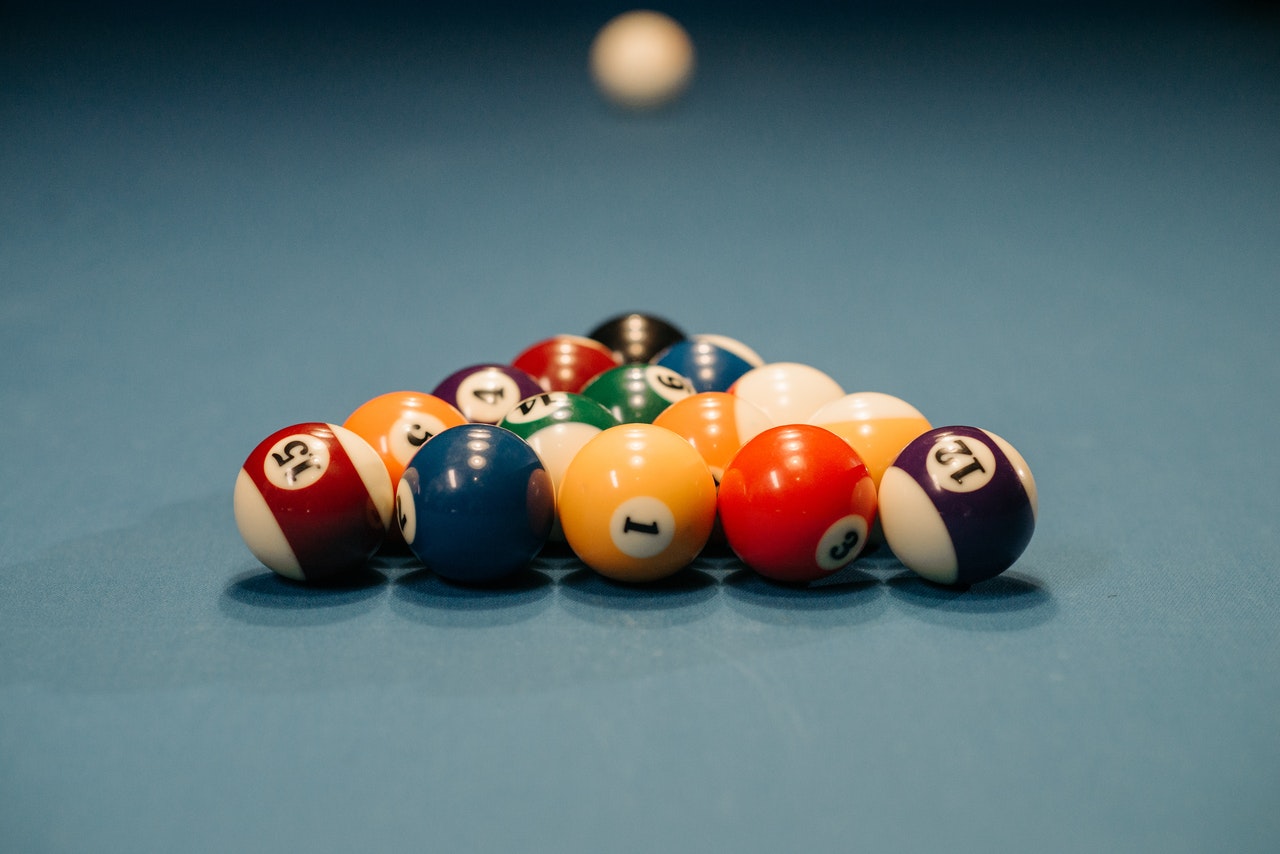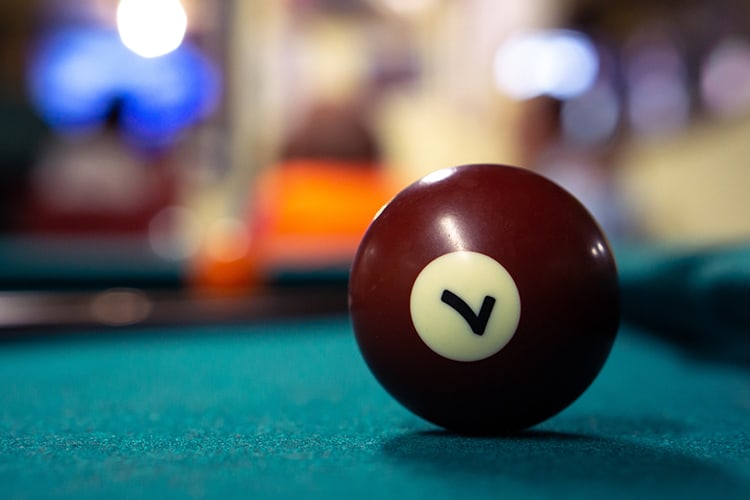Ever wondered how to polish pool balls and keep them looking brand new? Pool balls are more than just accessories for the game—they're an essential part of your pool table setup. Whether you're a casual player or a competitive enthusiast, maintaining your pool balls is crucial for both performance and aesthetics. In this guide, we'll walk you through the process of polishing pool balls step by step, so they shine like they've just rolled out of the factory.
Let’s face it, pool balls take a beating over time. They collide, scratch, and even collect dust and grime. Over time, this can affect not only their appearance but also how they perform on the table. That's why knowing how to polish pool balls is a must-have skill for any pool player. This guide will cover everything from cleaning to polishing, ensuring your pool balls are in top condition.
We’ll dive into the best techniques, tools, and tips to make your pool balls gleam. From understanding the materials your pool balls are made of to selecting the right polish, this article has got you covered. So, grab your favorite beverage, and let’s get started on how to polish pool balls like a pro!
Read also:Hd Hub 4utv Your Ultimate Destination For Highquality Entertainment
Why Polishing Pool Balls Matters
Polishing pool balls isn’t just about making them look shiny. It’s about preserving the quality of your game. Over time, pool balls can develop scuffs, scratches, and even discoloration due to regular use. These imperfections don’t just affect the appearance of your pool balls—they also impact how they behave during gameplay. Here are a few reasons why polishing your pool balls is essential:
- Improves Ball Performance: Smooth and polished balls roll more consistently and predictably.
- Enhances Aesthetic Appeal: Who doesn’t love a set of sparkling pool balls on their table?
- Prolongs Ball Lifespan: Regular maintenance helps prevent premature wear and tear.
Think of your pool balls as an investment. Proper care ensures they last longer and perform better, saving you money in the long run. Now that we’ve established why polishing matters, let’s move on to the materials your pool balls are made of.
Understanding Pool Ball Materials
Not all pool balls are created equal. Most modern pool balls are made from a durable material called phenolic resin. This material is known for its hardness and resistance to chipping, making it ideal for the high-impact nature of pool games. However, older balls might be made from other materials like polyester or even wood.
Knowing what your pool balls are made of is crucial because different materials require different cleaning and polishing techniques. Phenolic resin balls, for example, can handle more rigorous cleaning methods compared to softer materials.
Here’s a quick breakdown of the most common materials:
- Phenolic Resin: Hard, durable, and resistant to scratches.
- Polyester: Softer and more prone to wear but still widely used.
- Wood: Rarely used today but found in vintage sets.
By understanding the material of your pool balls, you can tailor your polishing process to suit their specific needs. Next, let’s dive into the tools you’ll need to get the job done.
Read also:Pr Movies Your Ultimate Guide To Public Relations On The Big Screen
Tools You’ll Need to Polish Pool Balls
Polishing pool balls doesn’t require a lot of fancy equipment, but having the right tools can make the process much easier. Here’s a list of essentials you’ll need:
- Microfiber Cloth: Soft and lint-free, perfect for wiping away dirt and grime.
- Polishing Compound: A mild abrasive that helps remove scratches and scuffs.
- Isopropyl Alcohol: Great for cleaning grease and grime off the surface.
- Soft Brush: Ideal for reaching into small crevices and removing dust.
- Gloves: Protects your hands from chemicals and ensures a better grip.
These tools are readily available and won’t break the bank. Investing in quality tools ensures that your pool balls get the care they deserve. Now that you’ve got your tools ready, let’s move on to the step-by-step process.
Step-by-Step Guide on How to Polish Pool Balls
Cleaning Your Pool Balls
Before you start polishing, it’s important to clean your pool balls thoroughly. This step removes any dirt, grease, or grime that could interfere with the polishing process.
- Fill a bucket with warm water and add a few drops of dish soap.
- Submerge the pool balls in the soapy water and let them soak for 10-15 minutes.
- Use a soft brush to gently scrub the surface of each ball.
- Rinse the balls with clean water and dry them with a microfiber cloth.
Cleaning is a crucial step that shouldn’t be skipped. It ensures that your pool balls are free from contaminants that could damage the surface during polishing.
Removing Scratches and Scuffs
Once your pool balls are clean, it’s time to tackle those pesky scratches and scuffs. Here’s how you can do it:
- Apply a small amount of polishing compound to a microfiber cloth.
- Gently rub the compound onto the surface of the ball in circular motions.
- Focus on areas with visible scratches or scuffs.
- Wipe away any residue with a clean microfiber cloth.
Polishing compound is your best friend when it comes to removing imperfections. It’s gentle enough not to damage the surface but effective enough to smooth out scratches.
Common Mistakes to Avoid
While polishing pool balls might seem straightforward, there are a few common mistakes that can ruin the process. Here are some things to watch out for:
- Using Harsh Chemicals: Avoid using strong chemicals that can damage the surface of the balls.
- Over-Polishing: Too much polishing can wear down the surface, affecting the ball’s performance.
- Not Cleaning First: Skipping the cleaning step can lead to ineffective polishing.
By avoiding these mistakes, you can ensure that your pool balls are polished to perfection. Next, let’s talk about maintenance tips to keep your balls looking great.
Maintenance Tips for Pool Balls
Polishing your pool balls is just one part of maintaining them. Here are some tips to keep your balls in top condition:
- Store Them Properly: Keep your pool balls in a cool, dry place to prevent warping or discoloration.
- Clean After Each Use: Wipe down your balls after every game to remove sweat and dirt.
- Rotate Regularly: Rotate the balls in your set to ensure even wear and tear.
Regular maintenance not only prolongs the life of your pool balls but also ensures they perform well during gameplay.
Benefits of Regular Polishing
Polishing your pool balls regularly comes with a host of benefits. Here’s why you should make it a part of your routine:
- Improved Gameplay: Smooth balls roll more predictably, giving you better control.
- Enhanced Appearance: Polished balls look better, adding to the overall aesthetic of your game.
- Increased Lifespan: Proper care prevents premature wear, saving you money on replacements.
By incorporating regular polishing into your maintenance routine, you’ll enjoy better gameplay and a more attractive set of pool balls.
When to Replace Pool Balls
No matter how well you take care of your pool balls, there comes a time when they need to be replaced. Here are some signs that it’s time for a new set:
- Deep Scratches: If the scratches are too deep to be polished out, it’s time for new balls.
- Discoloration: Faded or yellowed balls can affect the look of your game.
- Chipping: Chips or cracks indicate significant damage that can’t be repaired.
Knowing when to replace your pool balls ensures that your game remains enjoyable and fair.
Conclusion
Polishing pool balls might seem like a small task, but it has a big impact on your game. By following the steps outlined in this guide, you can keep your pool balls looking and performing their best. Remember to clean them regularly, use the right tools, and avoid common mistakes to ensure longevity.
So, what are you waiting for? Grab your tools and start polishing those pool balls today! And don’t forget to share your experiences in the comments below. Who knows, you might just inspire someone else to take better care of their pool balls.
Table of Contents
- Why Polishing Pool Balls Matters
- Understanding Pool Ball Materials
- Tools You’ll Need to Polish Pool Balls
- Step-by-Step Guide on How to Polish Pool Balls
- Cleaning Your Pool Balls
- Removing Scratches and Scuffs
- Common Mistakes to Avoid
- Maintenance Tips for Pool Balls
- Benefits of Regular Polishing
- When to Replace Pool Balls


